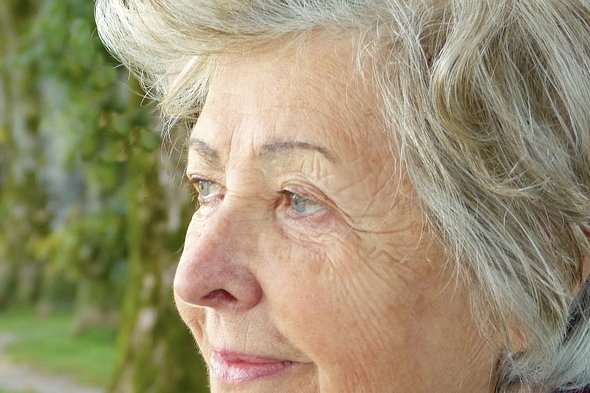Study finds that rates of cognitive decline may be sharper among widowed older adults. File photo courtesy of Max Pixel
Feb. 26 (UPI) -- Being widowed late in life may increase a person's risk for Alzheimer's disease and other forms of dementia and cognitive decline, according to a study published Wednesday by JAMA Network Open.
In an analysis of 257 married, widowed and unmarried -- including never married, divorced or separated -- adults enrolled in the Harvard Aging Brain Study, widowed participants "demonstrated worsening cognitive performance" as well as higher levels of beta-amyloid protein.
Earlier research has linked elevated levels of beta-amyloid in the brain with increased risk for Alzheimer's disease.
"Unfortunately, we don't know the specific mechanisms by which widowhood increases risk of cognitive decline," study co-author Nancy J. Donovan, director of the Division of Geriatric Psychiatry at Brigham and Women's Hospital in Boston, told UPI. "However, we would recommend for widows what we know to be beneficial overall for older adults: exercise, social engagement, cognitively stimulating activities, a healthy diet, managing stress levels, attending to mental health and reducing cardiovascular risk factors."
"Some but not all studies have found that having a close sibling or adult children may help protect against cognitive decline so supportive family relationships may be important," Donovan added.
According to the U.S. Centers for Disease Control and Prevention, more than 16 million Americans are living with some form of cognitive impairment. Age remains the greatest risk factor for the condition.
Of the 257 participants in Donovan's study, 153 were women, and the mean age was roughly 74 years. In all, 145 were married, and 35 were widowed.
Compared with married participants, widowed participants demonstrated worsening cognitive performance and beta-amyloid levels, while there were no observed differences between married and unmarried participants.
Widowed participants with higher baseline beta-amyloid levels experienced steeper cognitive decline. The rate of cognitive decline among widowed participants with high beta-amyloid levels was nearly three times faster than among married participants with high beta-amyloid, the authors found.
Although the researchers emphasized that the findings are not conclusive -- as larger studies are needed -- they believe they are compelling enough that future research should look at widowhood as a potential risk factor for cognitive decline.
"It will be very important to determine the biological processes and other factors that explain the connection between widowhood and cognitive decline," Donovan said. "We are also initiating a program within our geriatric psychiatry clinical group to study and support older adults with spousal loss. Though much of my work has been focused on social factors such as loneliness and social engagement in aging, I came to realize the huge impact of spousal loss from my clinical work with patients."















